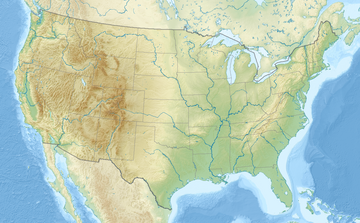The NFL playoffs following the 1967 NFL season culminated in the NFL championship game on New Year's Eve, and determined who would represent the league against the American Football League champions in Super Bowl II.
The 1992 NFL season was the 73rd regular season of the National Football League (NFL). Due to the damage caused by Hurricane Andrew, the New England Patriots at Miami Dolphins game that was scheduled for September 6 at Joe Robbie Stadium was rescheduled to October 18. Both teams originally had that weekend off. This marked the first time since the 1966 NFL season and the AFL seasons of 1966 and 1967 that there were byes in week 1.

The 1969 NFL season was the 50th regular season of the National Football League, and its last before the AFL–NFL merger. To honor the NFL's fiftieth season, a special anniversary logo was designed and each player wore a patch on their jerseys with this logo throughout the season.
The 1967 NFL season was the 48th regular season of the National Football League. The league expanded to 16 teams with the addition of the New Orleans Saints.

The 1966 NFL season was the 47th regular season of the National Football League, and the first season in which the Super Bowl was played, though it was called the AFL-NFL World Championship Game. The league expanded to 15 teams with the addition of the Atlanta Falcons, making a bye necessary each week for one team.
The 1965 NFL season was the 46th regular season of the National Football League. The Green Bay Packers won the NFL title after defeating the Cleveland Browns in the championship game, the last before the Super Bowl era.
The 1964 NFL season was the 45th regular season of the National Football League. Before the season started, NFL commissioner Pete Rozelle reinstated Green Bay Packers running back Paul Hornung and Detroit Lions defensive tackle Alex Karras, who had been suspended for the 1963 season due to gambling.
The 1963 NFL season was the 44th regular season of the National Football League.
The 1962 NFL season was the 43rd regular season of the National Football League (NFL). Before the season, CBS signed a contract with the league to televise all regular-season games for a $4.65 million annual fee.
The 1961 NFL season was the 42nd regular season of the National Football League (NFL). The league expanded to 14 teams with the addition of the Minnesota Vikings, after the team's owners declined to be charter members of the new American Football League. The schedule was also expanded from 12 games per team to 14 games per team where it would stay for 16 years. The Vikings were placed in the Western Conference, and the Dallas Cowboys were switched from the Western Conference to the Eastern. The addition of the Vikings returned the NFL to an even number of teams.
The 1950 NFL season was the 31st regular season of the National Football League. The merger with the All-America Football Conference (AAFC) expanded the league to 13 teams. Meanwhile, television brought a new era to the game. The Los Angeles Rams became the first NFL team to have all of its games – both home and away – televised. The Washington Redskins became the second team to put their games on TV. Other teams arranged to have selected games televised.
The 1952 NFL season was the 33rd regular season of the National Football League. Prior to the season, the legacy of the Dayton Triangles, the final remaining Ohio League member and the franchise then known as the New York Yanks owner Ted Collins sold his team back to the NFL. A few days later, a new team was then awarded to an ownership group in Dallas, Texas, after it purchased the assets of the Yanks.
The 1959 NFL season was the 40th regular season of the National Football League.
This article contains an in-depth explanation of the history of the Dallas Cowboys, a professional American football team that competes in the National Football League (NFL).
The 1967 Los Angeles Rams season was the team's 30th year with the National Football League and the 22nd season in Los Angeles. Under second-year head coach George Allen, the Rams had a regular season record of 11–1–2, tied for the best in the league, and won the Coastal Division title. It was their first playoff appearance since 1955.
The 1963 Green Bay Packers season was their 45th season overall and their 43rd season in the National Football League. The two-time defending NFL champions finished with an 11–2–1 record under fifth-year head coach Vince Lombardi for a second-place finish in the Western Conference, a half game back.
The 1964 Green Bay Packers season was their 46th season overall and their 44th season in the National Football League. The team was led by sixth-year head coach Vince Lombardi, and tied for second place in the Western Conference at 8–5–1.
The 1960 Green Bay Packers season was their 42nd season overall and their 40th season in the National Football League. The team finished with an 8–4 record under second-year head coach Vince Lombardi to win the Western Conference and a berth in the NFL championship game. It was the Packers' first appearance in the title game since winning it in 1944. After a Thanksgiving Day loss at Detroit, the Packers won their final three games, all on the road, to win the crown.
The 1960 Dallas Cowboys season was the inaugural season for the franchise in the National Football League (NFL).
The 1960 Detroit Lions season was the 27th in the Motor City, and 31st season overall in franchise history. The Lions had only one win entering November, but had only one loss in their final seven games and finished at 7–5, one game short of the Western Conference championship. However, the Lions won the inaugural third place Playoff Bowl over the Cleveland Browns at the Orange Bowl in Miami.


